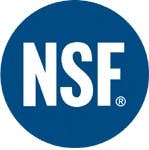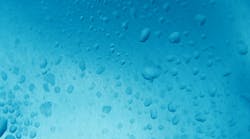Drinking water suppliers may inadvertently create a public health risk if they use products from an uncertified chemical supplier that has inappropriately repackaged treatment chemicals, according to the independent, not-for-profit NSF International.
An incident involving a contaminated treatment chemical used at a public drinking water system in Pennsylvania has caused increased concerns about the repackaging, transfer and transport of drinking water treatment chemicals. As a result, the Commonwealth of Pennsylvania's Department of Environmental Protection has reminded water suppliers that all transfer facilities and repackagers of drinking water treatment chemicals are required to be certified to NSF/ANSI Standard 60—even if the original manufacturer of the source chemical is certified.
Many chemicals that are used to treat drinking water are shipped in bulk via tanker truck and rail car to distributors who then transfer or repackage the chemical to another container for delivery to the water utility. This repackaging process can be a source of contamination.
NSF/ANSI-60: Is the national health effects standard for chemicals used to treat drinking water. Chemicals certified by NSF International to NSF/ANSI Standard 60 must meet specific requirements during manufacture and through the rest of the supply chain to the point of application by a water utility. This is important during repackaging or transfer, because products may be subject to contamination that could lower drinking water quality.
"Many water suppliers are under the assumption that using repackaged drinking water chemicals is acceptable," said Dave Purkiss, NSF general manager of water distribution systems. "This may not be correct because even chemicals previously certified to NSF requirements lose their certification when repackaged, unless the point of repackaging or product transfer has been audited and certified by NSF."
Requirements of NSF/ANSI 60 include:
-Formulation review for each certified chemical;
-Good Manufacturing Practices audit, at which time shipping practices are reviewed and random samples are selected for testing; and
-Testing of the product samples from the container of final transport vessel (truck, bulk container).
Pennsylvania's Department of Environmental Protection will only accept third-party certification of treatment chemicals and recognizes only two ANSI-accredited certifying agencies, NSF and Underwriters Laboratories (UL) for this work. Pennsylvania is among 40 states that accept third-party certification of products to NSF/ANSI 60 by ANSI-accredited certifiers. While Pennsylvania is taking the lead on the issue of repackaged treatment chemicals, it is important that states across the nation also address the safety concerns of water treatment chemicals.
According to Purkiss, "The most common type of contamination of chemicals comes from the repackaging and transportation of the products. An informal survey we conducted at the 2005 AWWA Conference showed that one out of five utilities had experienced some type of contamination issue. NSF Certification provides a solution to help alleviate hazards associated with chemical contamination."
Source: NSF International


